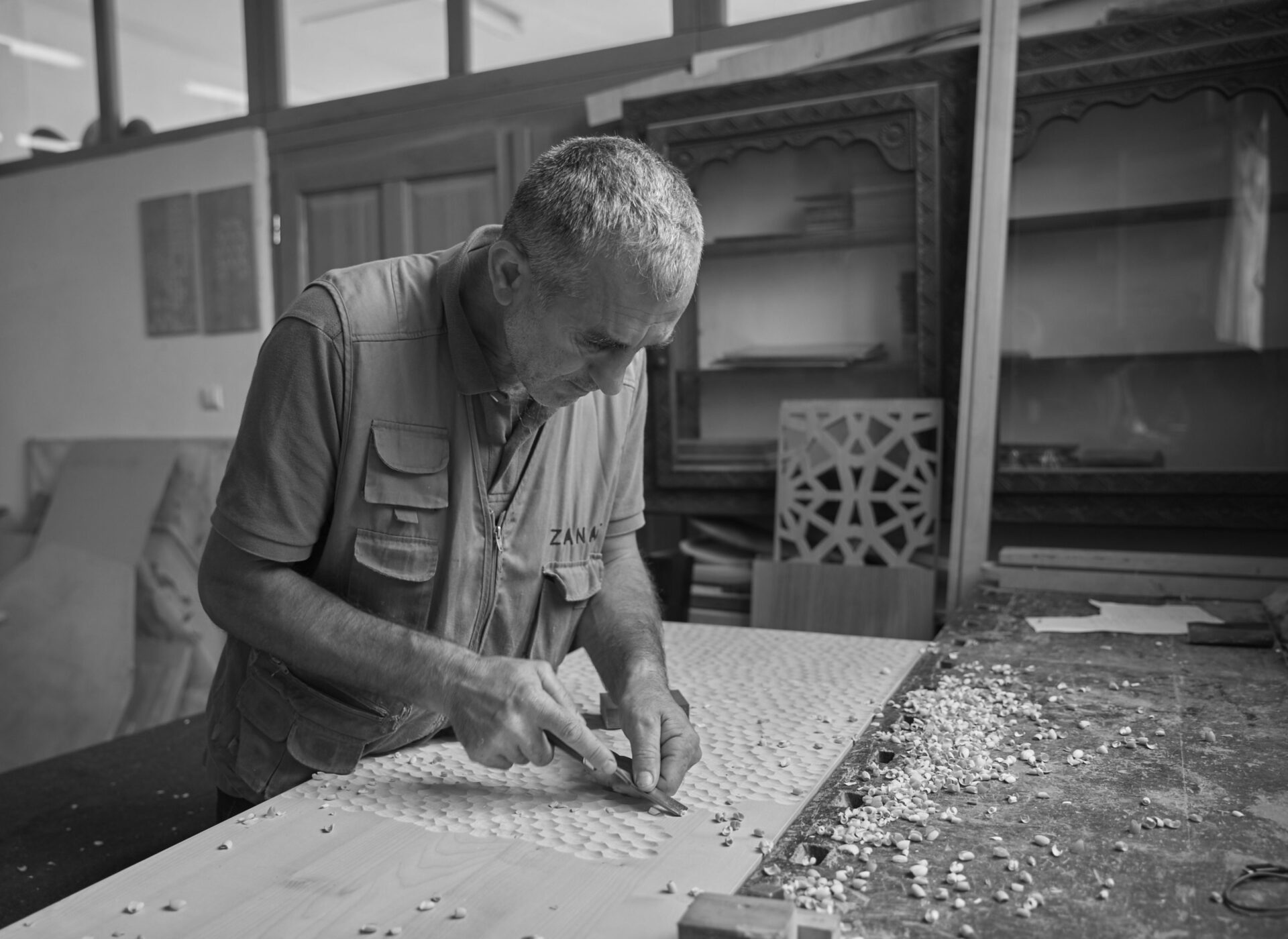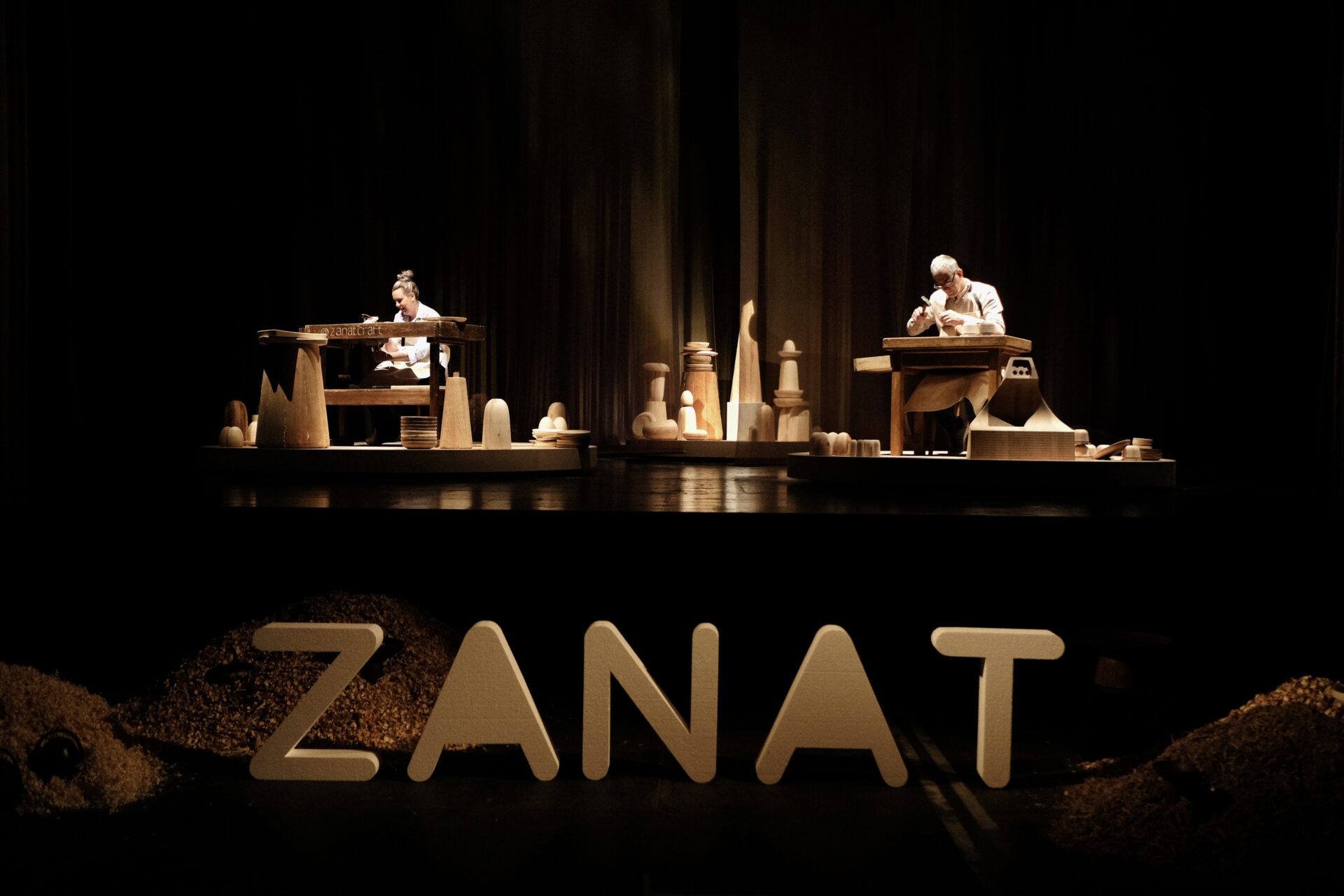
Craftsmanship is the essence of our company’s identity. Our very name, Zanat, is Bosnian for “craft”, and the artistry and skill that it implies is also vital for fulfilling our mission of Universal Sustainability. There are many reasons why we still sketch new designs directly on wood surfaces, manually chiseling and cutting the grain to bring the drawings to life, but we would be lying if we didn’t include the sheer fun of woodcarving, and a certain emotional attachment to the hand-carving techniques used by four generations of our family on the list as well. The number of textures, patterns and aesthetic styles that can be created by using these techniques is infinite, limited only by the imagination of the artist-creator. The process enhances the tactility of wood pieces and transforms them into traditional or modern decorative art and since the details are done by hand, no two pieces are exactly the same—quite the opposite of today’s mass produced and homogenized consumer goods. Unsurprisingly, the creative and remarkably unique designs that emerge from our manual production techniques are fertile sources of new inspiration to both novice and renown furniture designers.
Several of our products and the carving technique are a part of the official Bosnian cultural heritage list. The woodcarving technique specific to Zanat’s hometown Konjic, which is still practiced in our company was inscribed onto the UNESCO Representative List of Intangible Cultural Heritage of Humanity. We take pride in being the bearers, protectors and promoters of this unique heritage for the whole world.
Still, beyond beauty, love of the process itself, and a responsibility to the survival of our culture, there are other important reason why we espouse hand-carving and craftsmanship in general. One of them is to restore some tactility—an essential human need—to an increasingly virtual world.
Furthermore, in today’s world of accelerating automation, which is driven by technological advances, millions of people in all sorts of industries are losing jobs to computers and machines around the world. Identifying strategies to create decent employment opportunities for the global army of about 200 million unemployed individuals with manual or even mental skills is one of the top conundrums facing policymakers, researchers, and international development professionals. At Zanat, we believe firmly that technological advancement is overall positive and not a process we’re interested in trying to stop, but we also believe that the kind of jobs we can train for and offer will form a part of the solution for automation’s side effects. The marriage between modern product design and craftsmanship—which we use to great effect everyday—was basically a case of divorce after the industrial revolution, but we think we have found a way to bring back the love and to help the entire family. Back then, the change in design trends enabled industries to develop, created jobs in those industries, and produced goods at prices the masses could afford. Now, too few people are producing too many products and those who don’t work cannot afford them. Re-kindling the marriage between design and crafts not only provides new inspiration to design professionals, but also contributes to resolving one of the most troublesome socioeconomic problems of our time: unemployment. In Bosnia, where a quarter of the labor force is unemployed—and more than a half of young people—the creation of quality jobs is certainly an imperative.
In short, ours is a kind of craftsmanship that embraces and holds on to rich traditions, while at the same time reaching out confidently toward the future. It is the kind of craftsmanship that can both improve your home and our world.
